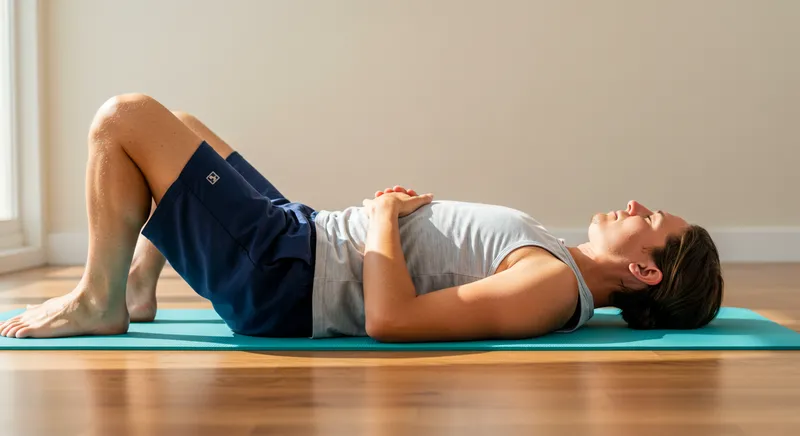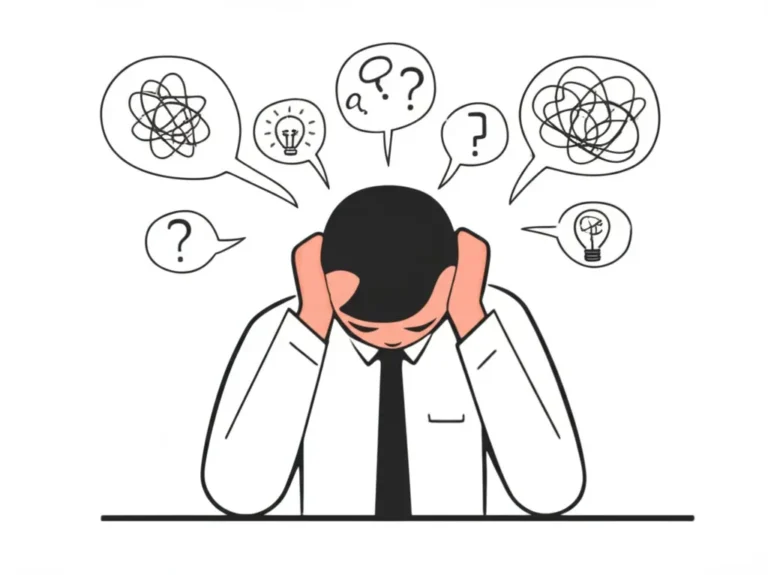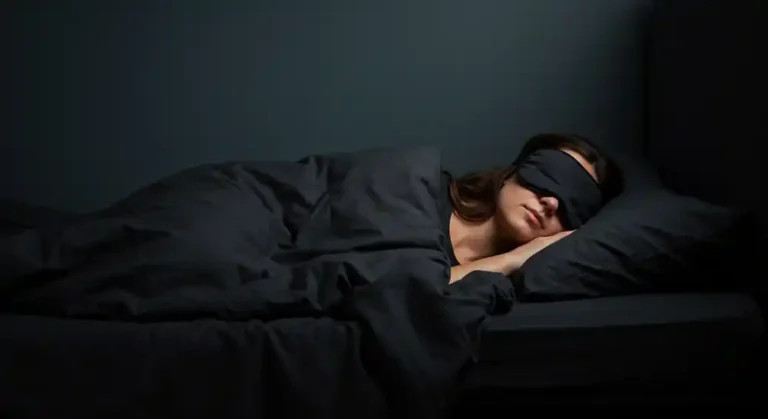How to Lower Cortisol: 7 Simple Biohacks for a Stress-Free Life

Ever found yourself snapping at loved ones before your morning coffee, then hitting an energy wall by 3 PM, only to lie wide awake at midnight with racing thoughts?
I’ve been there too. What you’re experiencing isn’t just “being busy” – it’s the telltale signature of dysregulated cortisol.
The shocking truth?
Over 77% of people experience physical symptoms of stress that directly link to cortisol imbalance. I discovered this the hard way after burning out while juggling a startup and family life.
In this guide, I’ll share the exact, science-backed ways to reduce stress and biohacks that helped me (and countless clients) how to lower cortisol levels naturally – no extreme protocols or mysterious supplements required.
These are practical, beginner-friendly strategies that work with your biology, not against it.
What Is Cortisol?

The cortisol, friend or foe?
Stress has become an almost inevitable part of daily life. At the heart of our body’s response to stress lies cortisol, a hormone that plays a crucial role in how we cope with challenges.
Here are its main functions in the body:
- Produced by your adrenal glands sitting atop your kidneys
- Functions as your body’s built-in alarm system and energy regulator
- Naturally peaks around 8 AM to help you wake up and gradually decreases throughout the day
- Helps regulate metabolism, blood sugar, inflammation response, and your sleep-wake cycle
When Your Stress Switch Gets Stuck “ON”
- Chronic stress, poor sleep quality, or even overtraining can keep cortisol perpetually elevated
- Your body can’t tell the difference between a deadline, traffic jam, or being chased by a lion
- Key warning signs include stubborn belly fat, afternoon crashes, nighttime insomnia, constant irritability, and that frustrating “wired but tired” feeling
- A 2022 study in the Journal of Endocrinology linked persistently high cortisol to reduced cognitive function and metabolic disruptions
How to Lower Cortisol Naturally: The 7 Research-Backed Biohacks
While cortisol is crucial for managing stress, too much of it can be harmful.
The good news is that there are natural, science-backed ways to reduce stress and cortisol reduction and feel your best. In this section, we’ll share seven simple biohacks to help you reduce stress, balance your cortisol levels, and boost your overall well-being.
1. Morning Light Ritual (Free & Immediate Results)

I was skeptical about this one until I tried it myself. Getting 10-15 minutes of natural sunlight within an hour of waking can reduce evening cortisol by up to 25%.
- Step outside with your morning coffee, even on cloudy days (no sunglasses for maximum benefit)
- Can’t get outside? A 10,000+ lux light therapy lamp can help
- This simple habit reinforces your circadian rhythm, setting you up for better sleep later
“I’ve been doing the morning light ritual for just 2 weeks and my sleep tracker shows I’m falling asleep 20 minutes faster.” – Michael, 42
2. Strategic Breathwork (The 90-Second Reset)

When stress hits, your breathing pattern changes. Reverse-engineer this process with strategic deep breathing exercises to signal safety to your nervous system.
- Try box breathing (4 counts in, 4 counts hold, 4 counts out, 4 counts hold)
- The 4-7-8 technique works wonders before presentations or high-stakes meetings
- Research shows just 5 minutes of controlled breathing can drop cortisol levels in real-time
- I use this technique before every client call and my heart rate variability data proves it works
3. Sleep Environment Optimization
Poor sleep and high cortisol create a vicious cycle. Break it by optimizing your sleep sanctuary:
- Keep your bedroom between 65-68°F (18-20°C) – temperature impacts cortisol more than you think
- Use blackout curtains or a sleep mask (even minimal light exposure can trigger cortisol release)
- Remove electronics or use airplane mode at least 30 minutes before bed
- Track your trends with tools like Oura Ring or even free apps like Sleep Cycle to identify what works for YOUR body
4. Strategic Exercise Timing

Exercise is a hormetic stressor—how to lower cortisol naturally? With the right dose long-term, but timing matters enormously.
- High-intensity training after 6 PM can keep cortisol elevated at bedtime for sensitive individuals
- Save intense workouts for morning or early afternoon
- Replace evening HIIT with yoga, walking, or gentle mobility work
- Listen to your body – if you feel wired after evening workouts, that’s your cortisol talking
5. Targeted Supplement Support

While lifestyle changes form the foundation, certain supplements have solid research behind them. Here are some examples:
- Magnesium glycinate (300-400mg): Nature’s relaxation mineral that 68% of Americans lack
- Ashwagandha (300-600mg): A 2019 randomized controlled trial showed it reduced cortisol by 23% after 8 weeks
- L-Theanine (200mg): Found in green tea, promotes alpha brain waves associated with calm focus
- Phosphatidylserine (300mg): Particularly effective for exercise-induced cortisol elevation
Always consult your healthcare provider before starting any supplement regimen, especially if you take medications.
6. Digital Detox Blocks

Your devices are cortisol factories in disguise:
- Schedule 30-minute “airplane mode” blocks throughout your day
- Use apps like Freedom or Forest to block distractions
- Create a “digital sunset” ritual 60 minutes before bedtime
- Those notification sounds? They trigger tiny cortisol spikes – turn them off for non-essentials
7. Blood Sugar Stabilization

The blood sugar-cortisol connection is powerful but often overlooked:
- Start your day with protein, not sugar (aim for 20-30g of protein at breakfast)
- Counterintuitive finding: going too long without eating can spike cortisol
- Consider tools like continuous glucose monitors to see your personal patterns
The Hidden Stress Triggers Sabotaging Your Progress
Sometimes, the culprits are hidden triggers that quietly sabotage your progress. Identifying and addressing these sneaky stressors can make a world of difference in your journey to better health and well-being.
Environmental Factors That Matter
- Indoor air quality impacts cortisol (consider HEPA filters if you’re sensitive)
- Unfiltered tap water can contain cortisol-disrupting contaminants
- Artificial lighting patterns confuse your circadian rhythm
- Caffeine has a 5-6 hour half-life; that 2 PM coffee could be why you’re staring at the ceiling at midnight
The Inflammation Connection
Chronic inflammation and cortisol dysfunction feed each other in a dangerous cycle:
- Ultra-processed foods trigger inflammatory responses
- Gut health directly impacts your stress response (70% of serotonin is produced in the gut)
- Simple swap: Replace one ultra-processed food with a whole food alternative each week
What Balanced Cortisol Feels Like?
When you successfully reset your cortisol rhythm, here’s what you can expect (based on both research and client results):
- Wake up refreshed without hitting snooze (often before your alarm)
- Experience stable energy throughout the day (goodbye, 3 PM crash)
- Think more clearly and make better decisions under pressure
- Notice improved body composition without extreme dieting
- Feel genuinely calm while still being productive
- Recover faster from both workouts and emotional challenges
“I implemented these exact cortisol-lowering strategies after struggling with burnout. Within a month, my energy was back, my sleep tracker showed 22% more deep sleep, and I finally lost the stubborn weight around my middle that no diet would touch.” – Sarah, 38
Your Next Steps: Personalized Stress Reset
So how to lower cortisol and reduce stress? Remember isn’t about perfection—it’s about consistency with the strategies that address YOUR specific stress triggers.
The truth is, we all have unique cortisol patterns. What works for someone else might not work for you.
If you are new to biohacking and feeling overwhelmed, check this step-by-step article to know exactly how to get started.
Whether you’re struggling with energy dips, brain fog, recovery issues, or sleep problems, also try our free quizzes; they will guide you to your highest-leverage optimization opportunities.
👉Take the FREE 3-Minute Biohacking Quiz Now →
Disclaimer: The information provided on this site is for informational purposes only and should not be considered medical advice. Always consult with a doctor before making any changes to your health regimen or treatment plan.







